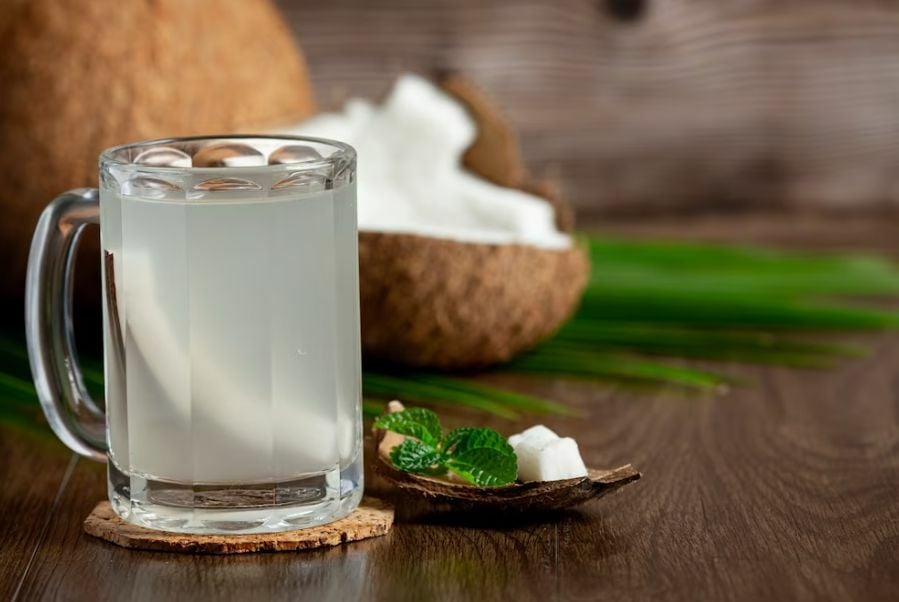Essential guide to staying healthy in Thailand’s climate

Thailand’s climate, a defining feature of this Southeast Asian gem, is predominantly tropical, marked by hot temperatures and high humidity levels throughout the year. The country’s geographical location near the equator, coupled with the influence of monsoon winds, contributes to the distinct weather patterns that characterize Thailand’s climate. Known for its intense heat and humidity, Thailand’s climate can be dangerous for both locals and visitors who aren’t aware of the risks. The hot weather can cause many health problems, making it important to understand the challenges of living in a tropical climate.
While Thailand’s tropical climate may offer many benefits, such as a lush natural environment and a vibrant tourism industry, it also poses several challenges for those who live there. Here are 7 tips to keep you healthy and hydrated in this climate.
Tips to stay healthy in Thailand’s climate
1. Drink plenty of water

Drinking plenty of water is essential when travelling or living in Thailand’s climate as the tropical weather conditions can easily lead to dehydration. The high temperatures and humidity levels cause your body to sweat more, which means you need to consume more water to replace the lost fluids and maintain optimal hydration levels.
To ensure that you’re properly hydrated in Thailand’s climate, aim to drink at least 2-3 litres of water per day. This amount can vary depending on factors such as your age, activity level, and individual needs. If you’re engaging in physical activities or spending a lot of time outdoors in the sun, you may need to increase your water intake accordingly. Carry a reusable water bottle with you at all times, and make a habit of refilling it throughout the day. This will not only help you stay hydrated but also reduce plastic waste. Be cautious about drinking tap water in certain parts of Thailand, as it may not be safe for consumption. Instead, opt for bottled or filtered water to ensure its quality and safety.
Drinking plenty of water should always be a priority, and electrolyte-rich beverages can be used as a supplement, especially during times of increased physical activity or heat exposure.
2. Choose electrolyte-rich beverages

Choosing electrolyte-rich beverages is crucial for maintaining proper hydration and electrolyte balance in Thailand’s climate. The tropical conditions, characterized by high temperatures and humidity, can lead to excessive sweating, causing the body to lose not only water but also essential electrolytes such as sodium, potassium, and magnesium. These electrolytes play a vital role in maintaining the proper function of your muscles, nerves, and overall body performance.
In Thailand, electrolyte-rich beverages are popular and widely available, especially during the hot months when people are more likely to sweat and become dehydrated. These drinks replenish essential minerals such as sodium, potassium, calcium, and magnesium that are lost through sweat during physical activities or exposure to high temperatures.
Some popular examples of electrolyte-rich beverages include sports drinks like Gatorade and Powerade, which contain a balance of electrolytes and carbohydrates to help refuel the body. Coconut water, a natural beverage commonly found in tropical regions like Thailand, is another excellent source of electrolytes, particularly potassium. Additionally, fruit juices such as orange and lemon juice mixed with water and a pinch of salt can also serve as a homemade electrolyte drink.
3. Consume fruits and vegetables

Consuming fruits and vegetables is crucial for maintaining a healthy and balanced diet, as they provide essential vitamins, minerals, fibre, and antioxidants. In the context of Thailand’s climate, which is predominantly hot and humid, the importance of eating fruits and vegetables becomes even more significant.
Fruits and vegetables have high water content, which helps to keep the body hydrated in the tropical heat. They can act as natural sources of electrolytes that help maintain the body’s fluid balance and prevent dehydration. For example, fruits like watermelons, oranges, and pineapples, which are commonly found in Thailand, are rich in potassium and can help replenish lost electrolytes. The antioxidants found in fruits and vegetables can help combat oxidative stress caused by exposure to high temperatures and pollution. These antioxidants help neutralize free radicals, reducing the risk of chronic diseases and strengthening the immune system.
The fibre content in fruits and vegetables aids digestion and helps maintain a healthy gut, which is particularly important in hot climates where foodborne illnesses are more common.
4. Dress appropriately

Thailand’s climate is hot and humid, with temperatures ranging from 28°C to 35°C throughout the year. This means that clothing should be lightweight, breathable, and comfortable to wear. Traditional clothing in Thailand is known for its loose-fitting style, which helps to keep the body cool and comfortable in the heat.
It’s important to dress appropriately for the local climate and culture. This means avoiding clothing that is too revealing or tight-fitting, as this can be seen as disrespectful in Thai culture. You may want to read the dos and dont in Thai dressing. Instead, it’s best to opt for clothing that covers the shoulders and knees, such as loose-fitting pants or skirts paired with lightweight, short-sleeved shirts. It’s important to choose clothes made from natural fibres like cotton, linen, and silk, as these materials are breathable and allow for better airflow. Synthetic fabrics like polyester and nylon tend to trap heat and moisture, which can make you feel uncomfortable in Thailand’s hot and humid climate. Accessories like hats and sunglasses are also important for protecting yourself from the sun’s harmful rays.
5. Protect yourself

Wearing sunscreen is a crucial step in protecting your skin from the harsh Thailand climate. The sun’s ultraviolet (UV) rays can cause skin damage, premature ageing, and increase the risk of skin cancer. Thus, it’s essential to apply a broad-spectrum sunscreen to shield your skin from both UVA and UVB rays.
When selecting a sunscreen to protect your skin, consider several factors to ensure you get the most effective protection. First, choose a sunscreen with a minimum SPF of 30, which blocks around 97% of UVB rays. Opt for a broad-spectrum formula, as it guards against both UVA and UVB rays, with UVA causing premature ageing and UVB leading to sunburn and skin cancer. Since Thailand’s climate is hot and humid, water resistance is essential; this feature ensures that the sunscreen remains effective even while swimming or sweating.
Additionally, look for a product that is suitable for your skin types, such as sensitive skin, oily skin, or dry skin, and make sure it contains moisturizing and soothing ingredients to maintain skin health in the tropical weather.
6. Avoid alcohol and caffeine

It is important to avoid alcohol and caffeine in Thailand’s heat due to the specific challenges posed by the climate. The country’s hot and humid weather can lead to excessive sweating and an increased risk of dehydration. Both alcohol and caffeine act as diuretics, meaning they promote fluid loss and increase urination. As a result, consuming these substances in Thailand’s heat can increase dehydration, making it more difficult for your body to maintain its necessary fluid balance.
Moreover, alcohol consumption can impair your judgment and decision-making, making it harder for you to recognize the signs of dehydration or heat-related illness. Alcohol can also affect your body’s ability to sweat, further hindering your ability to stay cool in the heat.
Given these risks, it’s essential to avoid or limit alcohol and caffeine consumption in hot climates like Thailand and focus on staying well-hydrated by drinking water, electrolyte-replenishing beverages, and other hydrating fluids.
7. Good hygiene

Maintaining good hygiene during Thailand’s heat is crucial for staying healthy and comfortable. Start by taking regular showers or baths with mild soap to remove sweat, dirt, and bacteria that can accumulate on your skin due to the hot and humid weather. Frequent showers will also help you feel refreshed and prevent body odour. Carrying wet wipes and cleansing cloths can also be very useful when you’re on the go, especially when you do not have access to water and soap immediately.
Opt for lightweight, breathable, and moisture-wicking clothing made from materials like cotton or linen, and change your clothes as needed to keep your skin dry and clean. Don’t forget to wash your clothes regularly, as sweat and humidity can cause them to harbour bacteria and develop unpleasant odours. Pay attention to your oral hygiene by brushing your teeth at least twice a day and using mouthwash to maintain fresh breath. Drinking plenty of water can also contribute to good oral health by rinsing away food particles and bacteria.
It may also interest you to read 7 tips to combat Thailand’s worsening air quality here.
Protecting your health in Thailand’s Climate Cigna Global health insurance
Thailand’s tropical climate can pose unique health challenges, from dehydration and heatstroke to skin conditions and more. While taking preventive measures like staying hydrated, eating well, and dressing appropriately are essential, having comprehensive health coverage is equally important.
Cigna offers expat health insurance plans that provide extensive coverage tailored to your needs:
- Silver Plan: Ideal for basic health coverage, including full cancer care and inpatient treatment, with an annual benefit limit of approximately 36,150,000 THB.
- Gold Plan: Offers comprehensive coverage, including higher annual limits, full inpatient maternity care, and newborn care, with an annual benefit limit of approximately 72,300,000 THB.
- Platinum Plan: The highest level of coverage with unlimited annual benefits, covering almost all health concerns, including inpatient and day-patient treatment, newborn care, and private room accommodations
Get a Free Quote from Cigna Global now. It’s a simple step that could make a huge difference in how you manage your health in Thailand. Feel secure knowing you have the best possible support for any skin conditions or other health concerns you might face.
Latest Thailand News
Follow The Thaiger on Google News:


























